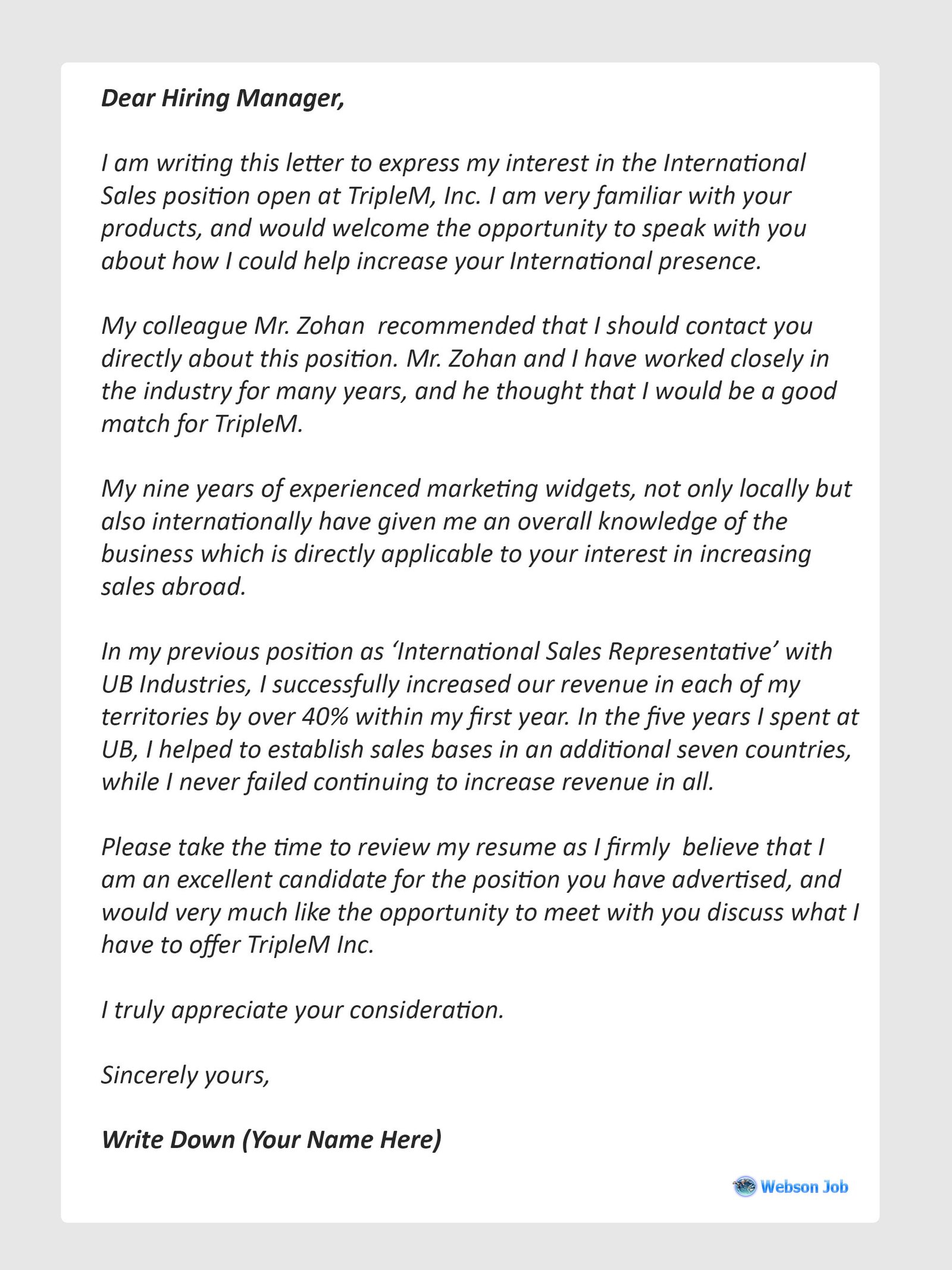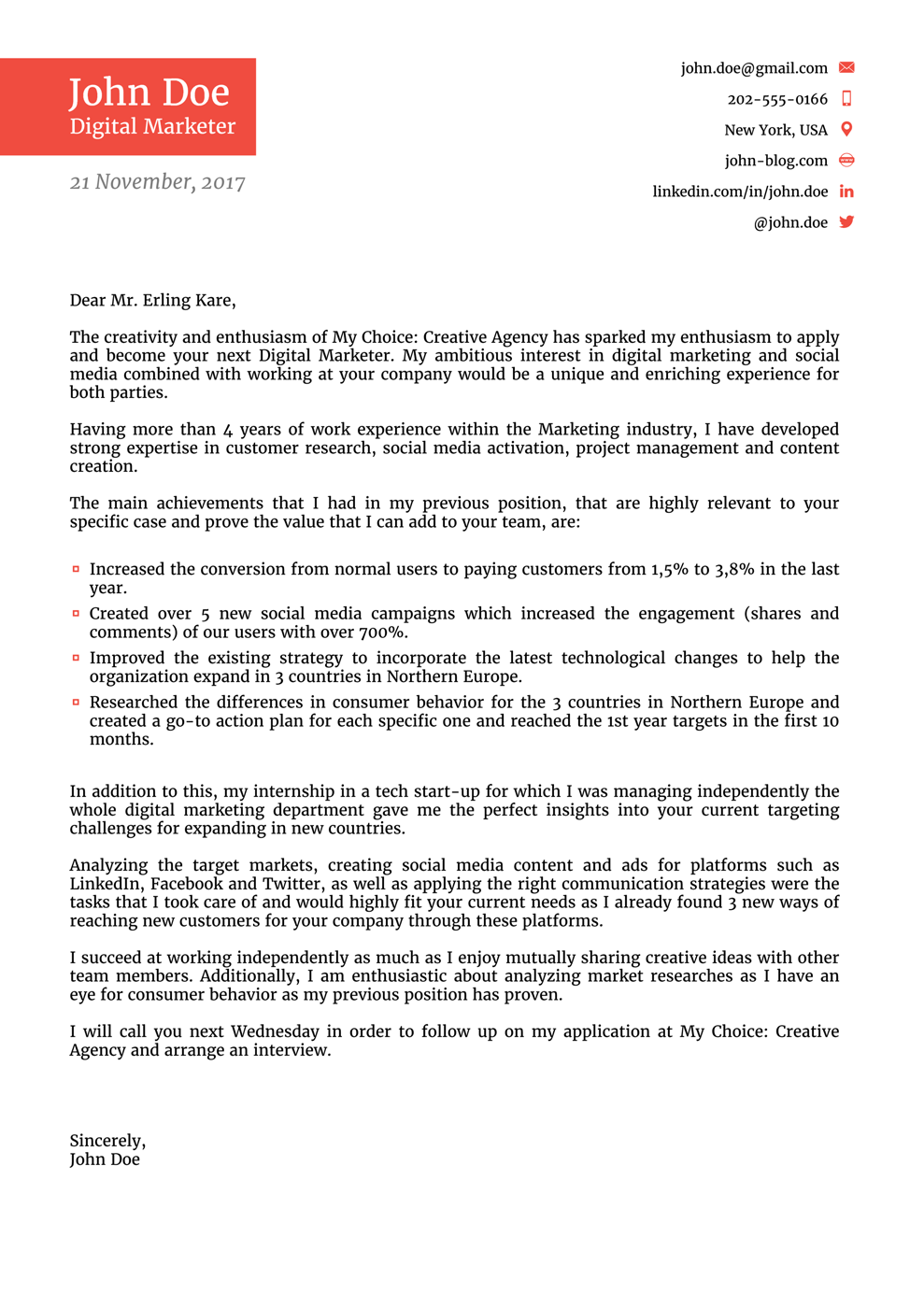
Politely request an interview at the employer’s convenience. (Your letter should complement, not restate, your resume.) Closing paragraph Show how your education and experience suit the requirements of the position, and, by elaborating on a few points from your resume, explain what you could contribute to the organization.

Highlight a few of the most salient points from your enclosed resume.Īrouse your reader’s curiosity by mentioning points that are likely to be important for the position you are seeking. Opening ParagraphĮstablish a point of contact (advertisement in a specific place for a specific position a particular person’s suggestion that you write): give some brief idea of who you are (a Senior engineering student at UW a recent Ph.D. Arrange the points in a logical sequence organize each paragraph around a main point.īelow is one possible way to arrange the content of your cover letter.For more information see Business Letter Format. Show some personality, but avoid hard-sell, gimmicky, or unorthodox letters.Use action verbs and the active voice convey confidence, optimism, and enthusiasm coupled with respect and professionalism. Write in a style that is mature but clear avoid long and intricate sentences and paragraphs avoid jargon.Demonstrate, if possible, some knowledge of the organization to which you are applying. As much as possible, tailor your letter to each job opportunity.Then try to match them in the letter in a way that will appeal to the employer’s self-interest. Assess the employer’s needs and your skills.Try to limit your letter to a single page.Thus, you will want to ask several people (if possible) who have had experience in obtaining jobs or in hiring in your field to critique a draft of your letter and to offer suggestions for revision.ĭespite the differences in what constitutes a good application letter, the suggestions on these pages apply generally. The appropriate content, format, and tone for application letters vary according to the position and the personality of the applicant. Remember that the letter not only tells of your accomplishments but also reveals how effectively you can communicate. Precisely because this letter is your introduction to an employer and because first impressions count, you should take great care to write an impressive and effective letter. Such a letter introduces you, explains your purpose for writing, highlights a few of your experiences or skills, and requests an opportunity to meet personally with the potential employer. You may need to make several phone calls to learn the contact’s name, correct spelling and title.To be considered for almost any position, you will need to write a letter of application. It may require resourcefulness and tenacity, but the benefits will outweigh the time and effort.

Identify the person who is likely to make the hiring decisions. Select white or a light colored paper that matches your resume and envelope. Employers have disqualified good candidates because the resume was poorly constructed. Write clearly and concisely, and check your letter for spelling and grammar. The cover letter is not the place to be self-serving. This is your opportunity to make yourself more attractive to the employer by showing that you have something the employer can use. Make sure you demonstrate how your skills, expertise and past accomplishments can benefit the employer. This is the perfect place to “editorialize” about the accomplishments cited in your resume. Incorporate information that reflects your knowledge of the organization, its industry and relevant issues.

Show how your credentials match the requirements of the job. Highlight Your Accomplishments With Measurable Results Cover Letter GuidelinesĪ cover letter that shows how your skills and experience relate to the specific position is more effective than a generic “all-purpose” cover letter. The cover letter should be typed in business format and printed on the same color and quality of paper as your resume. It is an essential part of the job search process. This letter introduces you and your resume, explaining both your reasons for writing and your qualifications for the position. A cover letter or letter of interest should always accompany each resume and/or application.


 0 kommentar(er)
0 kommentar(er)
